Conference of "National Oral History Status” held
Problems facing the oral history in Iran
Faezeh Sasanikhah
Translated by Natalie Haghverdian
2017-2-7
As reported by Iran Oral History Site, conference of "National Oral History Status” was held by the efforts of Oral History Office of Islamic Revolution Literature of Art Division on 30 January 2017 in the hall of Late Amir Hossein Fardi. The session was chaired by Hojat Ol-Islam Saeed Fakhrzadeh, in charge of Oral History Department, and Seyyed Qassem Yahosseini, oral history researcher and author, Morteza Mirdar, in charge of oral history office of Islamic Revolution Document Center, Mohsen Kazemi, Islamic Revolution and the Holy Defense Oral History Researcher and Davood Zameni, Deputy of Palnning, Monitoring and Evaluation of the Bureau of Art of Provinces expressed their point of views on the status of oral history in Iran.
How shall we pursue oral history?
First, Hojat Ol-Islam Saeeh Fakhrzadeh elaborated on the objectives of the session and said: We are exposed to challenges and issues in historiography and oral history which applies to all organizations and institutions active in the field. We made efforts to establish Oral History Society in collaboration with active individuals which seeks development and sublimity. We have had 10 sessions on various topics and articles have been delivered and issues have been discussed in the field.
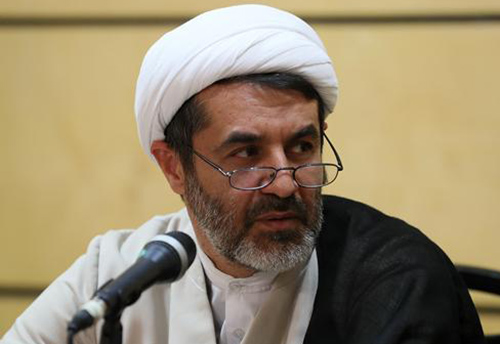
Considering that the third decade of the Islamic Revolution is coming to an end and the fourth decade is commencing we have to assess whether oral history has been successful in its efforts to make an impact on the society or not. Whether we have to pursue oral history based on the same method? We also have to establish debates in the media and the society as a whole and based on the feedbacks we have to decide whether to pursue the same methodology or new decisions are to be made. Hence, we decided to address the issue based on two approaches of oral history at national and global levels. We have invited active features to express their opinion.
Birth of Oral History in Iran
Seyyed Qassem Yahosseini, continued the session by commemorating Dahe-ye Fajr, Imam Khomeini and the Martyrs and referred to the birth of oral history in Iran and said: oral history was born with the Islamic Revolution. I believe the most prominent work of the field is the memoirs of Martyr Haj Mehdi Araghi. When he was in Paris with Imam, a group of Iranian students, members of the Islamic Society studying in Europe, invited him to talk about his memories. He honestly recounted his memoirs free from any political aspirations; his memoirs were published in 70s as “Nagofteha”[1].
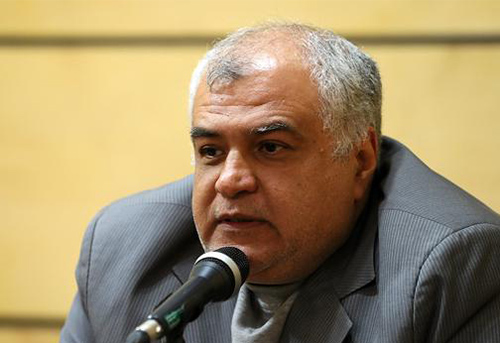
Author of “the Navy Warriors in Khoramshahr” continued: if we take oral history into considerations from a philosophic point of view, it started in the second half of the twentieth century by an opposition mainstream, the lefties; those who were in the margins and had no voice in the history. Some believe that it originates from Tabari History; but in fact there is a theoretic philosophy behind it which limits oral history to this era. Oral history was developed away from governance; in 1979 along with the victory of the Islamic Revolution it has grown strong and emerges with power in Iran. This is the first pathology. It is to say that oral history is in the heart of power and emerged alongside power in Iran; mixing science with power has its defects.
Oral History Pathology
Yahosseini stated two weak points of oral history in Iran and said: Currently, the oral history collected in governmental institutions in Iran suffers two defects. The first defect is elitism. I’ve closely monitored custodians of oral history and realized that there is no independent private institution involved in the oral history of the Revolution and all are either governmental organizations or linked to the government. This fact applies to the publishers. There are some governmental considerations which are applied to oral history as well. Elitism might be the result of this very fact. The second defect is that the sources are monotone. This might be cruel to the custodians of oral history.
He continued by analyzing historiography perspectives and said: “We know that there are different versions of history. History is subject to perception. In methodic and philosophical methodology studies it is proven that every historian bases argument on the truth. A Marxist or opposition historian narrates the history of the Islamic Revolution based on their own perspective and perception. Focus on these perspectives is not enough which might be the root cause of elitism. Majority of memoirs concerns the clergies in the first place and then the key features in Tehran and counties in the second.”
Employees or oral historians!
Author of “Zeytun Sorkh”[2] states that there are many untouched subjects and says: “Those active in the field of oral history are mostly employees rather than historians. 90 percent are unaware of its philosophy. Those conducting the interviews have no philosophical perspective and memorize some questions and repeat them over. What is perspective? The perspective of a Marxist is different from an Existentialist. In our case, individuals are ignored and governmental and power features are narrating. It is due to elitism and our dependency to power that we have lost one-self.”
We claim that this Revolution was the effort of the poor. In oral history philosophy we have a strong approach which is bottom to top and civil history which is unfortunately neglected in Iran. Our oral history production lacks objectivity, methodology and awareness. There are no interviews with a vendor working in Shoush and Molavi squares before revolution who has been appointed in no position after revolution. They can tell us the real story of the streets. Demonstrations affected their business but we have to account of it. These are various social layers. We have forgotten that this Revolution belongs to the poor.
One incident which was associated with a strong reaction by high revolutionary leaders including Ayatollah Taleghani was the attack of a group of revolutionaries to a Sodom which was set on fire. Ayatollah Taleghani assembled a committee to address the issue. Do we have anything about this social incident which is critical in feminist movement as well? The only individual who really addressed such issues was Later Golestan who took good pictures.”
Status of Staying Home Women in Revolution
The author said: “I would accompany my mother to the demonstrations during the Revolution. My mom used to cook at night so that we could eat upon returning from demonstration. Barriers hindering staying home women’s participation in the events are neglected in our productions.
Late Ms. Marzieh Dabagh has seven or eight children. She left them to join the Revolution. Where is the account of those moments that a mother was absent from home? Not only the military and clergy but the memoirs of the ordinary people affected by the events should be included.”
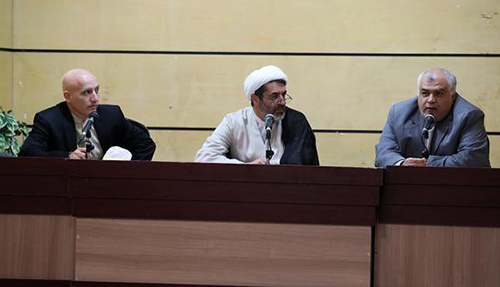
Memoirs of different social casts are included
Hojat Ol-Islam Fakhrzadeh responded to these arguments by saying: “Considering the time constraint I would like to note that the memoirs of various social casts and people are addressed to. The bicycle repair guy who informed the forces on his bicycle of the Iraqi invasion and prevented invasion of Abadan is an example. To clarify I should say that for instance in PLASCO Building incident, the priority is debris removal, then finding the martyrs and finding the root cause. We should not expect the priority to be with the shop owners and their economic difficulties. First the issue at hand is investigated and then the groups surpassed by it.”
Island approach in oral history
Morteza Mirdar said: “We haven’t found our counterparts and move separately and are unaware of others’ data. The history of Prophets in Quran focus is on the elites. The history concerns the elites as well.
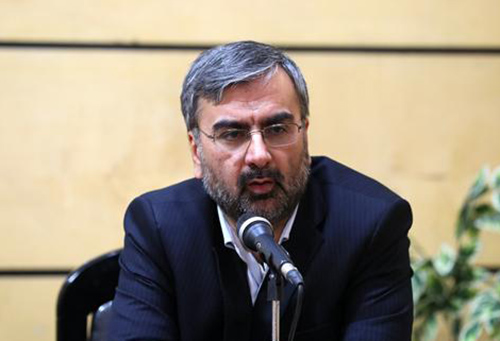
In Islamic Revolution Document Center, we are seeking revolution leaders and those active in the Revolution who are still alive and looking for political fractions; we collect the memoirs of clergies. If you look for key words in their memoirs from 1863 to 1978 many of them such as 15 of Khordad, Capitulation, referendum, etc.to the point of Imam coming to Iran, you’ll find articles. Dr. Papoli Yazdi refers to the civil groups in the University of Mashhad and Dr. Shariati, etc. Maybe this is our mission. Political fractures might not be your immediate focus. For instance when we talk about the grand Bazzar not all of them are key elements. Some of the active individuals are interested to share. Clergies say that quoting from others might compromise honesty. We have in Islamic tradition that if you pay alms with one hand the other should be unaware. We are the children of this culture.”
Consideration of narrative requirements
The manager of oral history of the Islamic Revolution Document Center elaborated: “We have collected 2700 memoirs so far. Compared to the total population before and after revolution, this figure is insignificant. We have just started; if we want to have a voice in oral history and draw a horizon, a proportion of our efforts have to be independent from governance and governmental institutions. For instance Mr. Hashemi Rafsanjani passed away. Mr. Badamchian said: Mr. Hashemi stated that he was involved in the assassination of Hassanali Mansour. We have the story of individuals. We asked Mr. Hashemi if he was involved in this assassination. He responded: This is a trick question. My assumption is that he both denied and acknowledged it.
The reservation that narrators have towards the Islamic Revolution usually affects their memoirs. They believe that they have been the key element. They overstate their role; in some cases it is because they have a political standing now. Once they realize that their memoirs do not glorify their status today, they tend to mislead or toy the interviewer so that he/she goes away.”
Legal relations of the interviewer and relevant institutions
He stated: “The legal relation of the interviewer and the narrator or the institution is unclear. The narrator is supposed to say everything and trust us. Today, unlike the past, I don’t encourage them to say everything since the political aspect overweighs the social and cultural aspects.”
Differences in the narrations of one story
Morteza Mirdar said: “When Sullivan visited Iran, many Iranian leaders met with him. One of them was Ayatollah Mousavi Ardebili. I interviewed him and it was published after he passed away. Sullivan, in his memoirs said that he met with Ayatollah Mousavi Ardebilit through Bazargan. Mr. Mousavi Ardebili said that he went to Revolution Council and coordinated with Imam in Paris. Imam said: “Meet! But make no promises.” Mr. Ardebili states that he doesn’t speak English and the Revolution Council decides that Mr. Bazargan will act as interpreter; however, he intervenes in the interview. Our interpretation from Sullivan’s memories is different. Mr. Mousavi Ardebili said that Mr. Sullivan’s friends took him for Imam by mistake while Mr. Sullivan said in his memoir that his driver took Mr. Mousavi Ardebili for Imam by mistake. Historians should take these aspects into consideration and then judge.
Those involved with oral history shall not rely on power. We have to address those aspects that are neglected. In talking about an important issue such as war, Martyr Seyyed Morteza Avini took the initiative to form a group and report on one front. There would have been more groups we would have more comprehensive data. In the case of Revolution, there are many people and various narratives. If we rely on group narratives then the reality might be compromised. To properly exploit oral history we shall move away from power. It shall not mean that we are neutral towards the Islamic republic. Never!”
Change of opinion
He stressed the active role of young women in the Islamic Revolution and said: “We interviewed women who were mostly religious. One of them said that she won’t recount her story since looking back she believes that what she had done was against the religious teachings. It will be a bad act for the young women to follow.”
Mirdar concluded: “We have to help the future oral historians and pave the way; to resolve the legal issues between the narrator and the individuals or institutions. Individuals are not bound by contracts but civil society institutions are. Now, oral history is exploited for political aspirations and elections. We neglect this issue and we will come to the point that oral history will turn into a political movement which will multiply the incentive of holding back in the narrator.”
Elaboration phase
Mohsen Kazemi, another speaker of the conference said: “The historiography inserted by the oral history to the society is in elaboration phase; we have yet to reach interpretation. We are recording and collecting data and information. There is confidential information that is kept secret and we might have to wait fifty years to talk about it. We published the memoirs of Javad Mansourie but years later new evidence came to light and we realized that the book needs revision and acted accordingly. Revolution is a socio-political phenomenon which surpassed all social infrastructures. Our Revolution was no exception and had its motto: “Independence, Freedom and the Islamic Republic.””
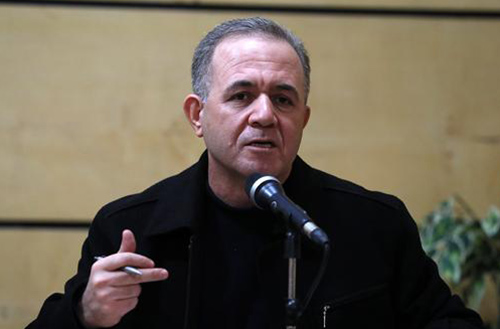
Relation of oral history and the Revolution
This author and history researcher said: “A major phenomenon called “War” gave birth to oral history. After WWII in 1945 a group of Americans set out to collect memoirs. It started in the University of Colombia and was later pursued much deeper in University of Chicago.
In our country, oral history was born with war. The archive of oral history of war in Sepah is over 20 thousand hours. Martyrs, Hemmat and Bagherie were unknown to people while they had revolutionary background. This is how the oral history of the Islamic Revolution was born and individuals like Mr. Fakhrzadeh and Zeinolabedini started it. Mr. Abdolmajid Moadiehkhah published a magazine including the memoirs of relevant people.
Our institutions had no oral history entitlement. It was an initiative that we pursued ourselves. Then other institutions such as Contemporary History were developed. Then, we had the Jihadi Institute of Sahba who did the marvelous work about Khomeini Shahr.
In fact the Revolution and War were two main custodians of oral history. It is the same all over the world. In 50s, the soldiers and veterans of war started oral history projects by focusing on elites and key features. They were the first generation. Then in 60s and 70s that new schools emerge, other aspects are involved in oral history to pursue their own objectives. In our case, in the decades to come, we will address other aspects but now in line with our mission we are trying to collect public memoirs as well.”
He focused on the private sector and added: “The works of Mr. Hashem Akbarian, fits within the private sector. Private sector is also active and has addressed many aspects of oral history; however, due to financial constraints they have failed in some efforts. In other cases, we collect the memoirs but the private sector refrains from publishing them. For instance, in case of the memoirs of Hojat Ol-Islam Nategh Noori and Mohsen Rafigh Doost. We have to train and support them in the framework of defined projects.”
He continued: “Oral history is highlighted now! In the past we had to request permission from the narrator to record their stories and now they come to us.
For a regime based on an ideology and clear definition of what it is and where it originates from and what it pursues, oral history is a proper cognitive tool. In a world that the regime is under attack, it has to prioritize and act accordingly.”
Mohsen Kazemi concluded: “The main issue is lack of a planning committee. There is massive volume of information and verification and authentication is a challenge. I believe that there should be a council or a faculty for planning. For instance, once a soldier of Hizb Ollah from Lebanon returns from Syria and war against ISIS, he has to say his story; however, publication of such stories has to be prioritized. We have to consider where we are standing. Recording is prior to publication. Oral history should be academic. It should be institutionalized. I’ve heard that Mr. Rohani has asked the Ministry of Islamic Guidance to set up an Oral History Bureau. Also, institutions involved should share their experiences.”
Discourse of memoirs and oral history
Davood Zameni, the last speaker of the conference said: “While reviewing oral history publications and programs in the recent years in the Art Division or else we have realized that there are hidden risks neglected by programs and producers. We are dealing with serious issues and challenges which I’m not willing to discuss here. We have to reflect on issues raised by Mr. Yahosseini.”
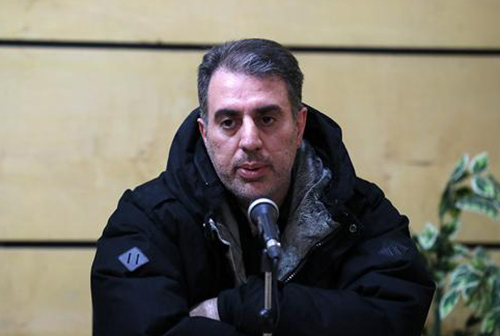
He said: “If we look at oral history from Thomas Kohen perspective and discourse analysis approach, it seems that memoirs are the cornerstone of oral history and there are four discourses against memories.
The first discourse considers memoirs as a literature to be read. This discourse is evident in the poems and works of authors before the revolution where taste dominates all. The second discourse considers memoirs as oral history. By the start of the Revolution and the Holy Defense, it mainstreams and we see publications which we might review and criticize. I believe it is too soon to discuss the Iran oral history doctrine. The experiences of individuals in the field of oral history shall not set the theory or doctrine. These individual theories suffer a critical epistemology crisis. The fact is that reality has vanished from oral history productions. According to the Austrian philosopher, fact is a glass that has fallen from the sky and each piece is collected by one institution or individual and no institution shall claim that they hold the reality.”
He continued: “The third discourse entails the therapeutic perspective. If we look at the works of Anson and Strauss, of those who started the qualitative approach in the hospitals, we will find evidence that oral history is a method to step into the unknown world of the patients. There are key features that quantitative studies do not serve them justice. The western experience in this discourse is invaluable. A few of these works are translated into Farsi; however there have been many developments in methodology that need to be translated.
The fourth discourse is from the perspective of cultural studies. We are dealing with massive oral history in our society. It is no overstatement to say that oral history has become a cultural industry now. Many intend to look at oral history from cultural industry perspective. The needs of memoir users differ from the needs of its producers. The western and American cinema was obsessed with movies from 2001 to 2012 that were memories. It means that we have to integrate various forms of art. Integrated history with cinema is far more effective than books or articles. It means that for future we have to seek ways to attract audience. We have to step away from literature based approach and have a poly-genetic or multimedia approach to oral history.”
Serious future challenges
Zameni stated some of the challenges in oral history in the future and said: “The first challenge is “distortion”; there are no criteria to measure authenticity and separate truth from false in oral history. Some criteria might be refutable. Distortion of the history of a nation starts with distortion of its words.
The second challenge is petrifaction. Some believe that the Islamic Revolution was a socio-political phenomenon that occurred in 1978 and finished which a mechanical perspective. There is another perspective which believes that the Revolution is still alive and productive. Hence, we have to pursue the developments of the Revolution in time. The fact that many works or narratives in the 60s were not published and now we have the opportunity of publishing them indicates that time requirements are involved in oral history.
The third challenge is understatement and the fourth challenge is politicization. Oral history is intertwined with political mainstreams. We have not studied oral history of the Islamic Revolution from cultural perspective. The fact that we have never targeted those marginalized by the society proves a cultural cycle. Many works published in recent years focus on political perspective and do not entail cultural history.
The fifth challenge concerns the negligence of the author towards deep and extended challenges. If we ignore the psychological authenticity in history, in the future we will have defaced productions that lack sufficient impact on scientific and social communities of the next generation. The sixth challenge is negligence of global developments. Oral historians shall not consider the events in 2017 as isolated from global developments and requirements. These are variables that undoubtedly affect the narrations and publications. If we do not address these challenges, the audience will not welcome oral history and the work done in the field will lack scientific background.”
There was a book fair held along with the conference where oral history publications were presented to the interested audience.
Number of Visits: 8211








The latest
- Oral History Methodology/National Archives and Library Organization of Iran, Archives Research Institute
- Third Regiment: Memoirs of an Iraqi Prisoner of War Doctor – 10
- 100 Questions/9
- Oral History News – Aban 1404
- The Relationship between “Religious Jurisprudence” and “Oral History”
- Third Regiment: Memoirs of an Iraqi Prisoner of War Doctor – 9
- 100 Questions/ 8
- Pak-Setan (Clean-Seeker)
Most visited
Challenges of Interviewing in Oral History
After years of studying the theoretical foundations of oral history, conducting numerous interviews and going through their post-interview stages, as well as reading the available body of oral history literature, I was eventually given the opportunity to evaluate the edited versions of dozens of oral history projects.Comparing the Narratives of Commanders and Ordinary Combatants in the Sacred Defense
An Analysis of Functions and ConsequencesThe experience of the Sacred Defense cannot be comprehended merely through statistics or official reports; what truly endures from war are the narratives of those who stood upon its frontlines. These narratives, however, vary significantly depending on one’s position, responsibilities, and lived experience.
Unveiling of the book "Oral History: What and Why"
The First report: Alireza KamariAccording to the Oral History website, the unveiling ceremony of the book "Oral History: What and Why" by Hamid Qazvini was held on Sunday evening, November 24, 1404, in the presence of experts in the field of oral history in the Salman Farsi Hall of the Arts Center.


